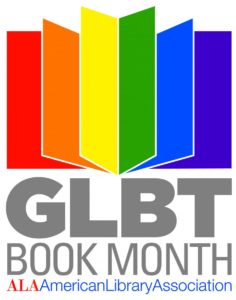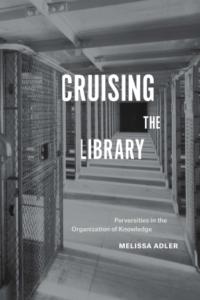June 2018 GLBT Book Month: Searching the Catalog for Books
 Have you ever looked up a book in the library catalog and checked out the “Details” section for that book? Looking at a book’s “Details” will point you towards citation information for a book, but it will also point you to a list of “Subjects” related to that book. These “Subjects” are usually links that will take you to other books “about” that particular subject in the library’s catalog.
Have you ever looked up a book in the library catalog and checked out the “Details” section for that book? Looking at a book’s “Details” will point you towards citation information for a book, but it will also point you to a list of “Subjects” related to that book. These “Subjects” are usually links that will take you to other books “about” that particular subject in the library’s catalog.
Libraries and librarians use subject terms to help describe resources. They are part of what librarians call a “controlled vocabulary”—they aren’t 100% hard and fast terms, since terminology changes over time, but they are set, agreed-upon terms that follow particular patterns. Most college and university libraries in the United States and even some libraries worldwide use the Library of Congress Subject Headings, established by the Library of Congress. Once you begin identifying useful subject terms and using them to search the catalog, you will get results that bring together books that have all been identified as being “about” that subject. Because there are variations, it’s always good to look at a book’s subject terms to see what other terms were used to categorize the book—which helps you find more search terms that can help you find more resources.
There are two ways to search by “subject” in the library’s catalog:
- Click on “Browse Search” on the “Catalog” tab. The default Browse option is “Browse by subject,” which allows you to type in a keyword or subject term and be directed to relevant subject terms.
- Click on “Advanced Search” and select “Subject” in an “Any Field” dropdown menu.
Examples of useful subject terms to help you search for materials relating to LGBTQ+ studies:
- Queer theory
- Homosexuality
- Lesbians
- Gays — Identity
- Gay Teachers (try also with other occupational categories)
- African American Gays (notice that the category is African American Gays, not Gay African Americans… hmm…)
- Bisexuality
- Transgender
- Intersex
- Sexual orientation
- Queer
- Gay Rights
- Female impersonators (interestingly, not Drag queens… hmm…)
You can also try “subject” searches on names, places, and even events to help narrow your searching if needed:
- Mock, Janet, 1983-
- Milk, Harvey
- Stonewall Riots, New York, N.Y., 1969
- Divine, 1945-1988
Because subject terms are created—and assigned—according to the intellectual currents of when the specific book was cataloged, there can be gaps and lags between a community’s usage of terms and the assignment/creation of LC Subject Headings. Doing a Browse Search by subject for Homosexuals will turn up lists up related subject terms, one for homosexuals not specified by gender, one for “Homosexuals, Female” and one for “Homosexuals, Male.” Doing a Browse Search by subject for Nonbinary (or Nonbinary Gender) will turn up a list of related subject terms as well, beginning with Gender nonconformity.
Cataloging librarians can propose changes in the LC Subject Headings; these have to go through an approved process and the process can be contentious. (For example, the Library of Congress still uses the subject term “Illegal Aliens” in spite of librarians’ pressure to switch to a term like “Noncitizen” or “Undocumented Immigrant.” For more on this story, click here). But these interventions can also be successful. As of 2016, Asexuality (Sexual Orientation) and Asexual People are now official LC Subject Terms. (If you’re curious about the journey those two headings took, click here for more information)
 Melissa Adler’s fascinating book Cruising the Library: Perversities in the Organization of Knowledge (2017) offers an in-depth discussion of the evolution (some might say devolution?) of terms relating to expanding sexualities within the Library of Congress Subject Headings.
Melissa Adler’s fascinating book Cruising the Library: Perversities in the Organization of Knowledge (2017) offers an in-depth discussion of the evolution (some might say devolution?) of terms relating to expanding sexualities within the Library of Congress Subject Headings.
Questions on how to find books and other resources related to LGBTQ+ topics? See our LGBTQ+ Studies research guide, or ask a librarian!